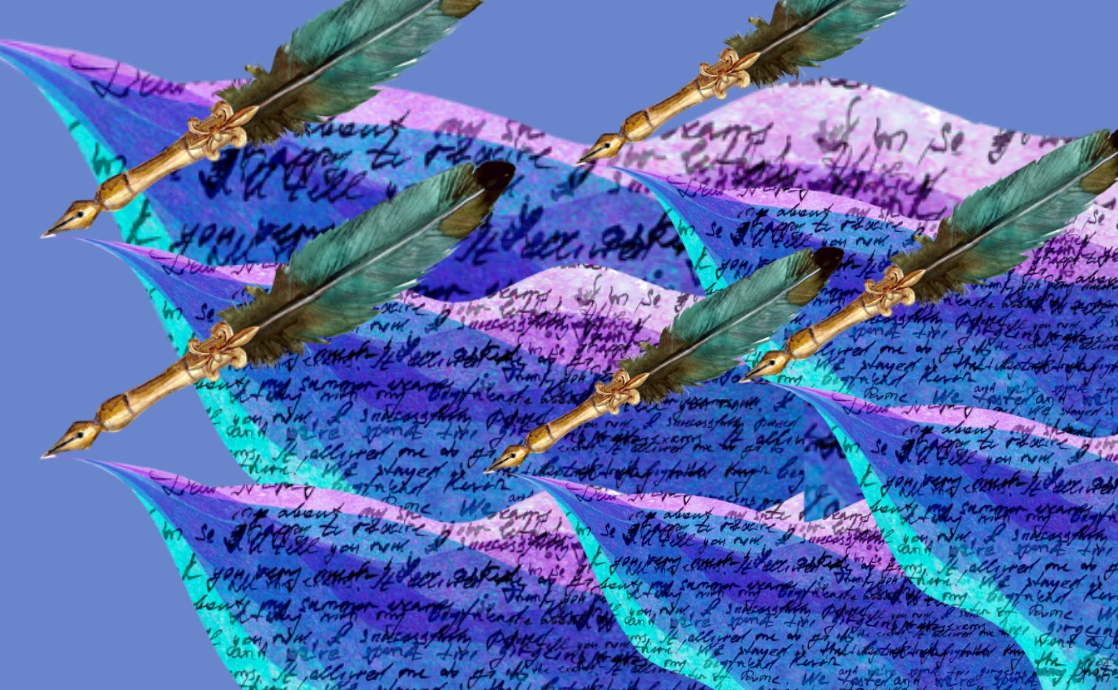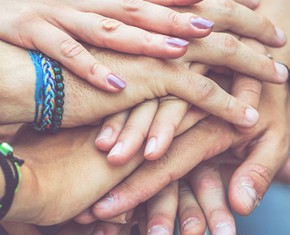The views expressed in our content reflect individual perspectives and do not represent the authoritative views of the Baha'i Faith.
Now, perhaps more than ever, life seems full of hard realities – maybe because the news is ever present on our devices, constantly bombarding us with images of disaster, conflict, war, and environmental issues.
Trustworthiness, peaceful cooperation, and movement toward world unity all seem to be in short supply, but using art as a tool to process reality can help offset the painful things we encounter.
RELATED: Poetry: From the Heart, and For the Heart
Every year I enter a North Texas poetry contest called the Common Language Project, in which each entrant must use 30 specific words – a hard task! This year, as I contemplated the required words (see list below*) and thought about what subject I might explore, Russia’s invasion of Ukraine naturally came to mind. For days I had felt heavy-hearted, thinking about the tragic physical and emotional consequences of conflict and war. This poem emerged:
WITNESS
And so, the arrival of spring coincides
with war. We are wearied
watching this unmapped, reckless, meandering carnage
as one aggressor devastates a country, consuming our days
with forbidding details and ambiguous outcomes.
Multitudes pulled along a migratory path seek asylum,
each with a child or two, perhaps a pet, and a meager bindle of belongings –
warm clothes, sparse bedding, food – leaving behind home and heart.
We witness horror broadcast on all our devices,
an extract more painful and far-reaching than past wars,
a culture collapsing in chaos with nowhere to go.
And yet, the resolute human spirit rises unto an elevated altitude,
Spring blossoms still surface,
perhaps underneath, a provisioned roundabout to come—
a sea change, unity against a common threat.
Humanity can reclaim its birthright,
emerge from a dusty past into something past due
as the Will of a higher power
thrusts us undaunted into a bracing course of changes.
It can startle, dampen, or delight us, this middle passage through new waters,
as we trim our sails, outpace previous capacities,
clamber out of an antiquated navigating scheme, take
a quantum leap from the outworn litany of us and them.
Figured and fashioned into our future, this brightness declares
the passage lies ahead, promising and possible.
Writing the poem, over a period of several days and with some good critique from several people in my various writing groups, I experienced a renewal of hope. This reconnected me with some of the major tenets of the Baha’i Faith, such as belief not just in the possibility but the inevitability of world peace, and in the potential transformation and unification of humanity.
While the war still rages, the Baha’i teachings helped me come to a better place to process the trauma of it through the agency of the poem. Baha’u’llah, the prophet and founder of the Baha’i Faith, wrote:
This is the Day in which God’s most excellent favors have been poured out upon men, the Day in which His most mighty grace hath been infused into all created things. It is incumbent upon all the peoples of the world to reconcile their differences, and, with perfect unity and peace, abide beneath the shadow of the Tree of His care and loving-kindness. It behoveth them to cleave to whatsoever will, in this Day, be conducive to the exaltation of their stations, and to the promotion of their best interests.
That’s one of the central concepts of the Baha’i Faith: through a new revelation from the Creator, we might all be inspired to rise to our potential and learn how to reconcile our differences, without physical warfare and with the “grown up” tools of consultation, respect, and human dignity.
The arts have the power to show us new realities, to take viewers/listeners/readers into new worlds. When we filter and transmute our personal feelings (distress, anger, joy, uncertainty, and the like) through the lens of the arts, others can relate, can journey with us, can connect to new places through creativity.
Baha’u’llah affirmed that “Arts, crafts and sciences uplift the world of being, and are conducive to its exaltation.” His son and successor Abdu’l-Baha reportedly said:
It is natural for the heart and spirit to take pleasure and enjoyment in all things that show forth symmetry, harmony, and perfection. For instance: a beautiful house, a well designed garden, a symmetrical line, a graceful motion, a well written book, pleasing garments – in fact, all things that have in themselves grace or beauty are pleasing to the heart and spirit.
These are just a few of the many inspiring passages about the arts in the Baha’i writings. Baha’is are encouraged to pursue the arts and to become excellent in those we pursue. In many passages, Abdu’l-Baha gives specific encouragement to those engaging in visual arts, theatre, writing, music, and the like, even equating the practice of art to worship. He wrote that “The acquisition of sciences and the perfection of arts are considered acts of worship.”
RELATED: Reflections on the Healing Power of Poetry
In a general sense, the Baha’i teachings encourage everyone to develop a greater ability to articulate the truth. Baha’u’llah wrote:
This is a matchless Day. Matchless must, likewise, be the tongue that celebrateth the praise of the Desire of all nations, and matchless the deed that aspireth to be acceptable in His sight. The whole human race hath longed for this Day, that perchance it may fulfil that which well beseemeth its station, and is worthy of its destiny.
One way of developing “matchless tongues” is through the arts, and we might aspire to achieve skill through the avenue of any art – animation, web design, music, architecture, all forms of literature, stage production, and so forth. We can also train ourselves to perceive and appreciate articulations in the arts to a greater degree.
When we create or appreciate the arts, we draw water from the deep well of the human spirit, and this can offset our responses to much of the hard reality we see in the world.
[Note: Anne was one of the winners in the 2021 Common Language Project contest. The anthology of poems can be found HERE]
*Words for the 2022 Common Language Project: ambiguous, arrival, asylum, bindle, bracing, clamber, consuming, course, dampen, dusty, extract, figured, forbidding, meandering, migratory, outpace, provisioned, pulled, quantum, reckless, reclaim, roundabout, startle, trim, undaunted, underneath, unmapped, unto, wearied, will.
















Comments
Sign in or create an account
Continue with Googleor